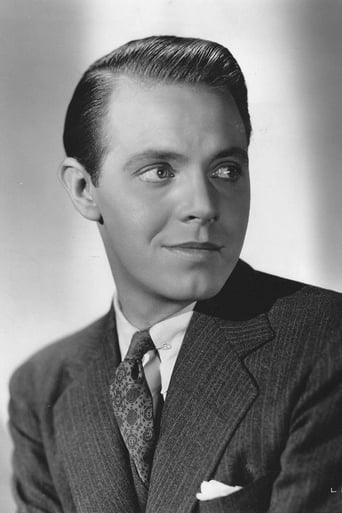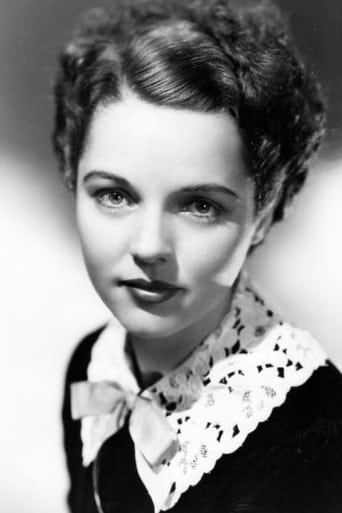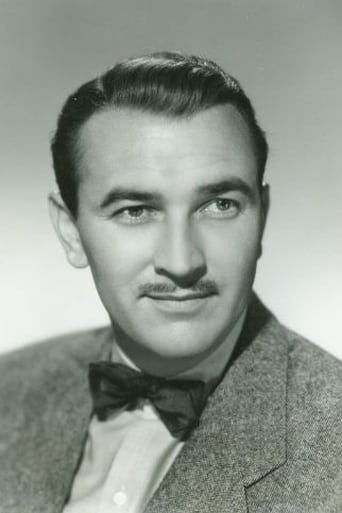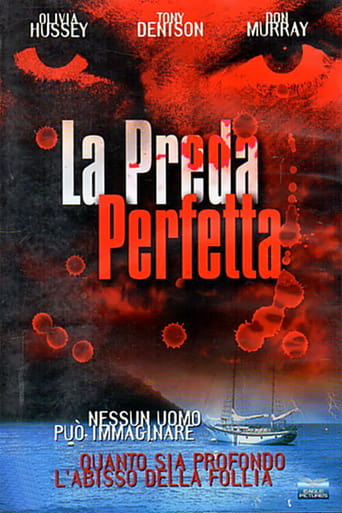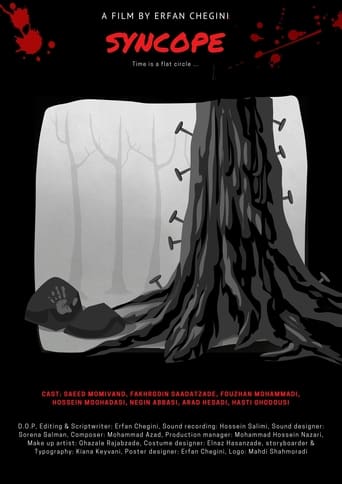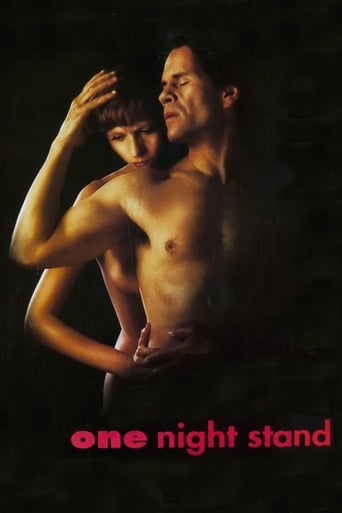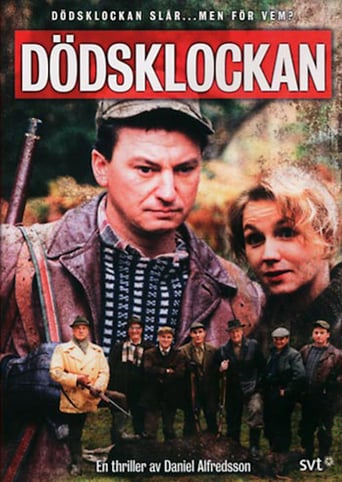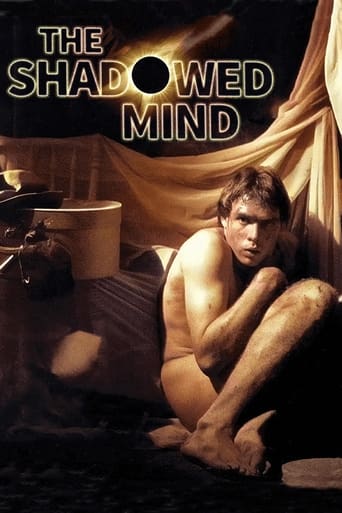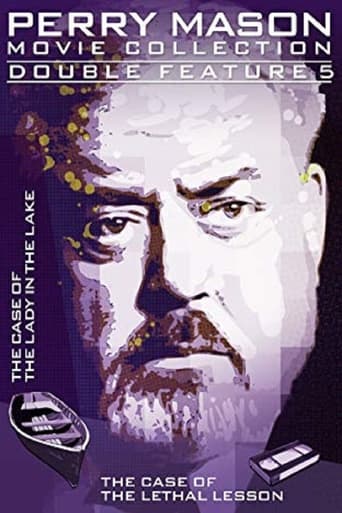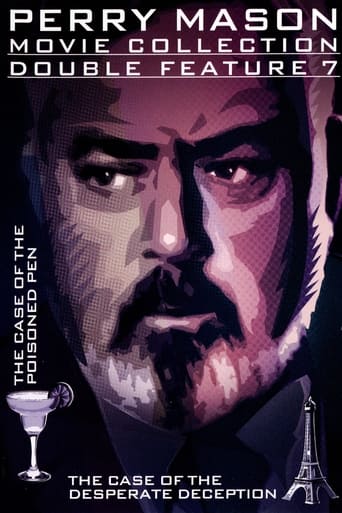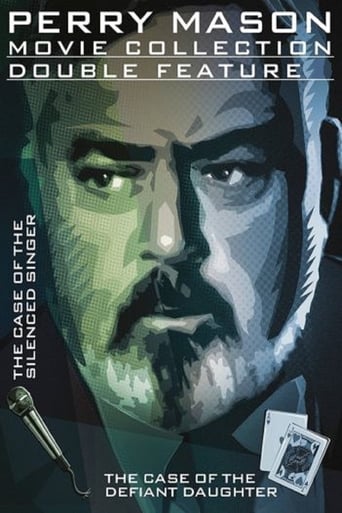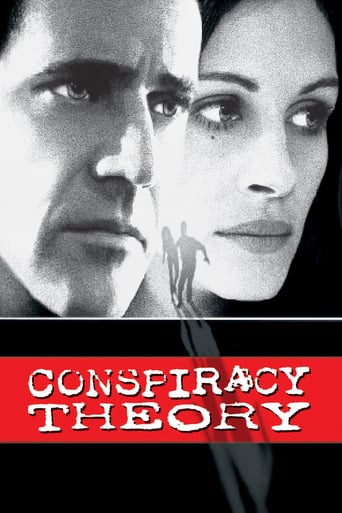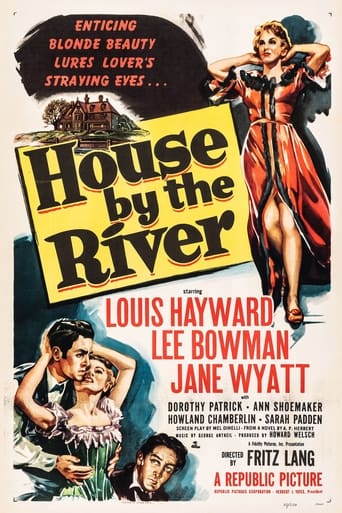
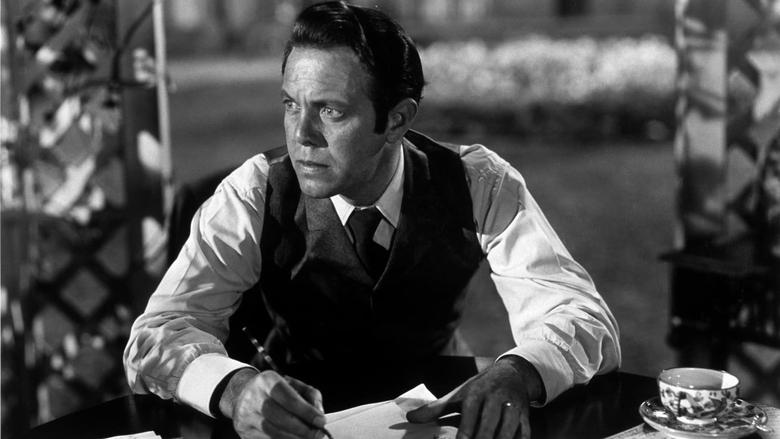
House by the River (1950)
Wealthy writer Stephen Byrne tries to seduce the family maid, but when she resists, he kills her. Long jealous of his brother John, Stephen does his best to pin the blame for the murder on his sibling. Also affected by Stephen's arrogant dementia is his long-suffering wife Marjorie.
Watch Trailer
Cast
Similar titles
Reviews
I love this movie so much
The Worst Film Ever
It was OK. I don't see why everyone loves it so much. It wasn't very smart or deep or well-directed.
This is a must-see and one of the best documentaries - and films - of this year.
An unscrupulous writer murders his comely maid, then shifts blame onto his crippled brother, all under the watchful glow of a river that seemingly never forgets.Republic goes noir! Well, it is 1949, and the genre is at its Hollywood peak. Still, pairing Republic with dark shadows is almost like pairing Roy Rogers with Sam Spade. But the studio was clearly serious, hiring one of the masters of noir, Fritz Lang. In fact, those shots of a darkly glistening river stretching out to infinity made me re-think the whole idea of swimming. And what about a slimy Louis Hayward as the unscrupulous Stephen. He's the kind of guy who would pat your back, smile, and then slip a letter opener into your gut. He's sure a long way from his usual swashbuckling hero. But my money's on portly Jody Gilbert who steals the movie as the truculent housekeeper. Gilbert's usually a comedic figure, but you'd never know it here. Frankly, though, the lengthy courtroom scene breaks up the noirish spell of the river and the shadowy bankside mansion. It should have been re-thought. Then there's the symbolism of the rippling gown and a flowing river, suggesting that justice and time, respectively, never forget. These shots are some of the most striking b&w photography I've seen. Of course, the producers couldn't have known at the time, but the wholesome Jane Wyatt made me think Robert Young and the kids would arrive any moment. Nonetheless, she's right for the sweet wife's part. Overall, the narrative may be flawed, but some truly memorable scenes remain. Maybe that's why the film's only occasionally included among Lang's best.
There's a constituting moment in a film that contains the seeds of its unfolding shape, usually there is. Here it is a writer in his house by the river, dreamily looking at the beautiful maid upstairs while his wife is out of the house, lusting. He has before him a stack of papers, the story which he continuously writes all through the film and is the film we see mirrored. Going into the house, desire grips him for a moment and shatters everything. An accident, which speaks of the mysterious, puzzling urges that overcome us and cloud the mind, a moment of 'looking' that is desire. A narrator who finds himself inhabiting that desire, hallucinating—essential attributes of noir these. Seeing, story, hallucinating author; this was Lang's mode ever since the silent Mabuse back in Germany. Godard knew why of all Hollywood filmmakers he picked him for his Contempt. For a while it's a perfectly decent film. The dark house with flowered wallpapers, where he can't find the 'light'. The river where they hide the body, and which throws up all the human 'filth' as the housekeeper muses. His paranoid fight with flowing waters, a capricious nature that cannot be manipulated like a story. So the blueprint is fine but Lang was getting old, or cinema was getting young. Noir at this point was pushing for a more dynamic narrative space on this side of the eye, Welles was foiled by stupid studio men in his Shanghai but look at Ray's and Dassin's work, Huston in his Asphalt Jungle. From Gun Crazy of the same year it is a straight road to Breathless and Godard. And In its visual contours and narrative space this is simply obsolete for the time. Lang was generally talented with hard layered allusion, not particularly graceful with anything else. He envisioned hard, chiseled noir dreams— Woman in the Window being his most obvious about a narrator dreaming, but they're all in the same simple mould. But here he's saddled with average actors, and completely loses the plot after the trial. Also, I'm in the habit of noticing how filmmakers film water, for some reason it's inherently cinematic and the perfect metaphor about soul. It's telling that water looms central in the film and Lang does so little with it. Germanic square imagination cannot understand water - unless you're Herzog.Noir Meter: 3/4
Fritz Lang directs this suspenseful Fidelity Pictures drama. Stephen Byrne(Louis Hayward)is a somewhat depressed writer due to a rash of rejection notices. While his wife Marjorie(Jane Wyatt)is away for the day, Stephen makes advances toward the pretty newly hired maid Emily(Dorothy Patrick)and when she tries to fight him off he kills her. The rattled writer, with the help of his brother John(Lee Bowman), manages to stuff Emily in a bag and dumps her body in the river. Byrne gets the inspiration he has seemed to be lacking of late and will start writing a book about the disappearance of the servant and also attempt to frame his brother for the murder. Very good sets and atmosphere. As Stephen goes out on the river and starts coming unhinged you can almost feel his desperation. Hayward and Bowman are the only actors that gets a chance to show their talent. Miss Wyatt is certainly attractive with little effort. Other players: Ann Shoemaker, Kathleen Freeman, Will Wright and Howland Chamberlain.
Wow this guy was one bottom feeder of a brother. A semi-semi-talented wanna be writer decides he wants to have a little kiss from the maid and his true nature comes out. He kills her accidentally but he realizes that...he doesn't care.After this (and this is just the beginning) he decides to shove the blame over to his brother. Of course his brother has done nuthin' except help him his whole life. This is a seriously useless individual. After the killing he realizes what he can get away with and decides that his writing needs "reality" to be any good. Meaning he has to actually live the stories for them to sell. So he lies against his brother, tries to kill him and whilst doing this he's writing a new book called...."The River".The performances are pretty good. The lead look scarily similar to a young thin Orson Welles. I had to look twice to make sure it wasn't him. He over does it a bit but the others, like his brother and wife, play their parts with a steady hand. This one has a Gothic typa feel to it. All in all a fairly decent film...just make sure you don't watch it with a sibling that doesn't like you :D
